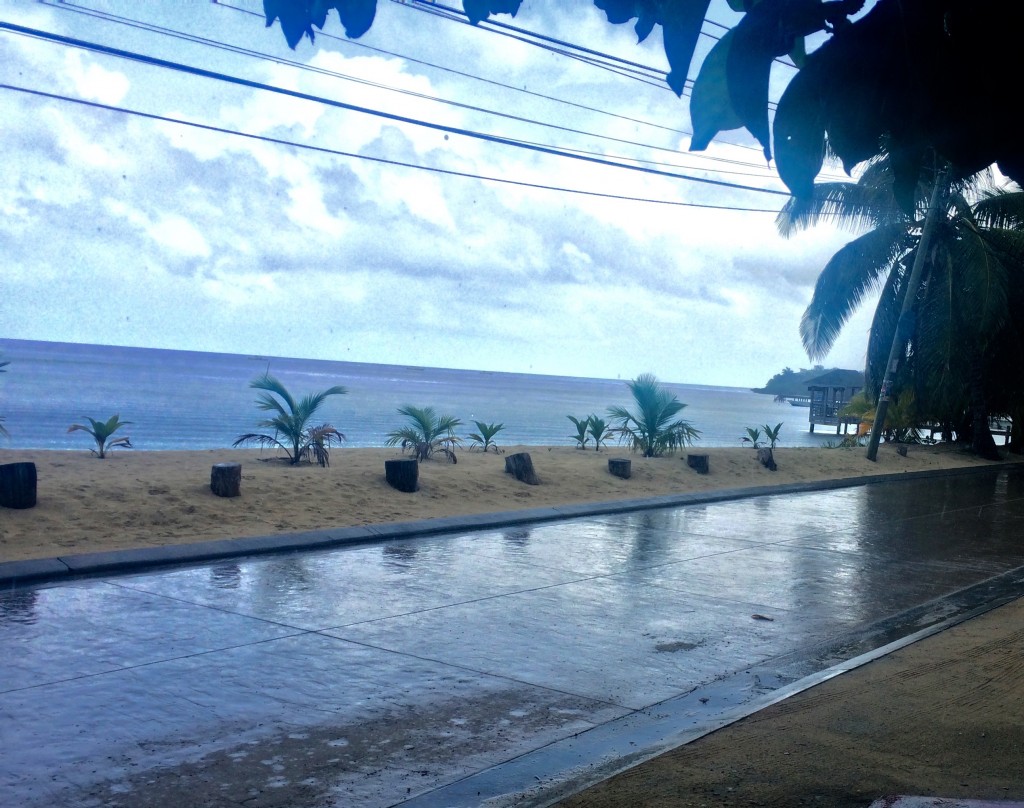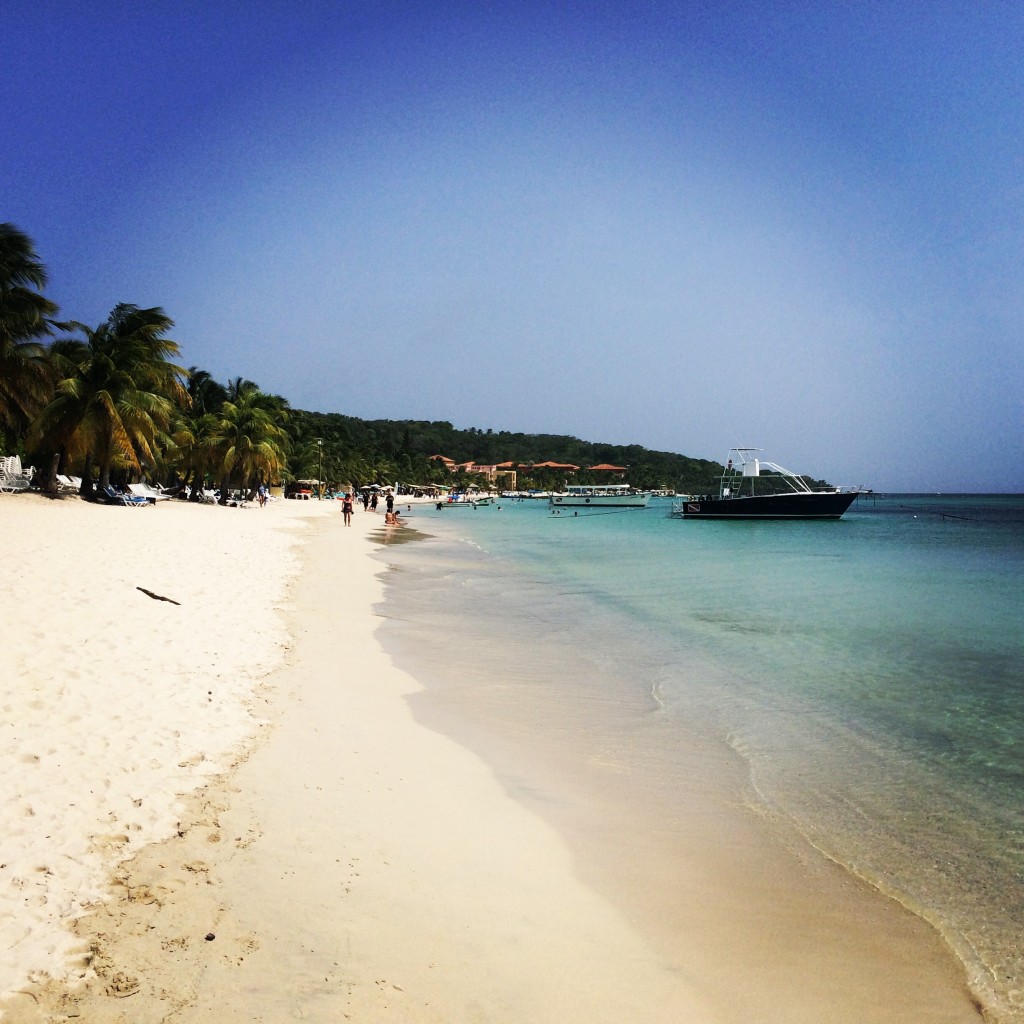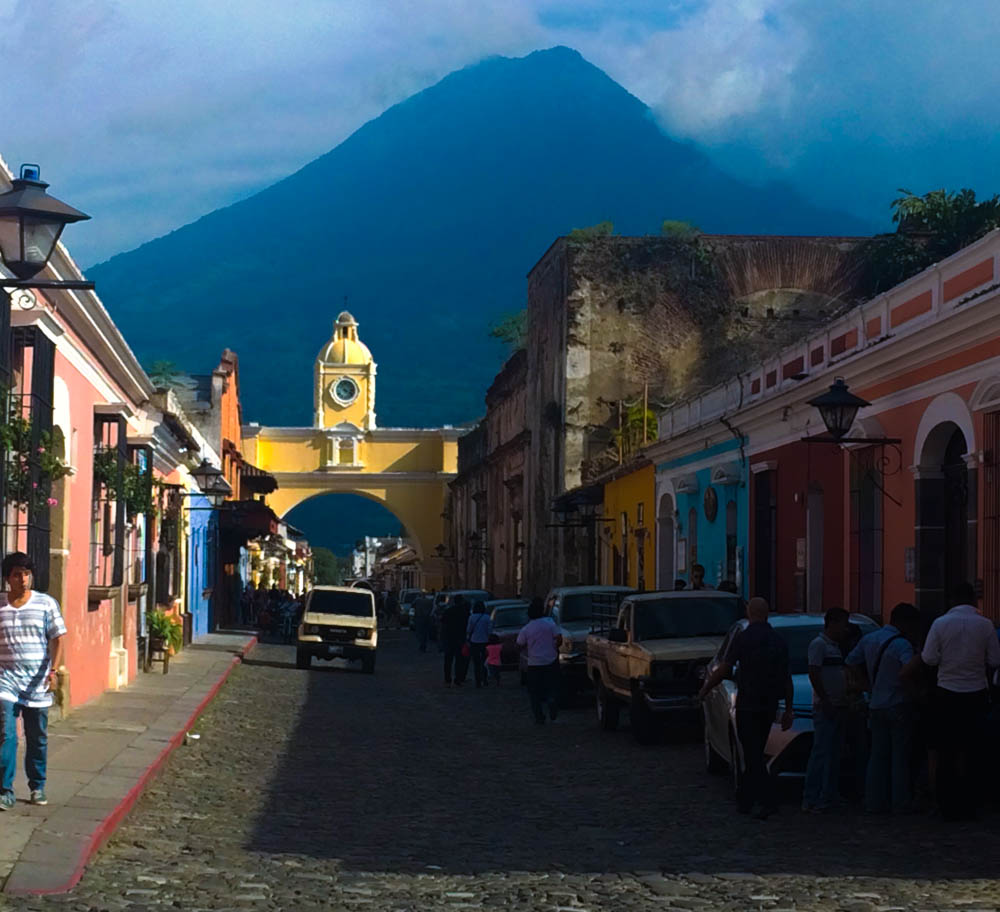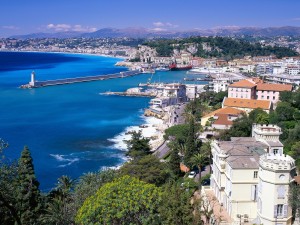How long are you staying for?
7 days.
The immigration agent froze and looked up from my passport.
Wow, really?
But that was all he said. He never elaborated on his reaction, which I can only assume as surprise. I guess most people don’t stay, at least not in Tegucigalpa.
Landing in Tegus was not unlike my very memorable landing in Queenstown less than a year before. The biggest difference was that rather than a play-by-play of the pilot’s actions and decisions, there was just utter silence. I assumed it couldn’t possibly be an issue if the pilot and flight crew didn’t have anything to say about it. Only after I cleared customs and was standing outside arrivals that I remembered my brother telling me that Tegus was one of the most dangerous airports in the world to fly into. Selective memory.
When I did see my brother and sister-in-law finally come out of arrivals after what felt like ages, it was a little bit like shock; seeing them for the first time in a year, and for the first time away from my niece and nephew since they’d been born. The first thing Ashley asked for was an iced coffee and it felt nice allowing myself to take comfort in her familiarity of this place that I wasn’t so sure about. We loaded into a minibus and were off to our fancy hotel in Tegus.
I tried not to think about the expense, I tried not to fear too much for my travel budget after only one week. But Ashley let me in on a little piece of wisdom: in Tegus you either pay, or you sleep in fear of your life. So, I shut up. Oh, and don’t leave the hotel alone.
The next two days were packed with wedding activities. It was a reunion for James and Ashley as they were reunited for the first time with the other volunteers who’d worked at Montaña de Luz alongside them two years ago. It was fun, it was busy and I was so grateful to be a part of it, to be welcomed with open arms into a ceremony at which I knew only two people.
But it was also about this time that my German friend went off the radar as he ventured into the depths of the Guatemalan jungle for a few days. He’d been my most constant point of contact since I’d arrived on the other side of the world and without that distraction, I couldn’t shake that feeling that there was still that thing in Sydney that I wasn’t so sure of. That thing that I was sort of running from, that something that I was afraid to admit I was afraid of.
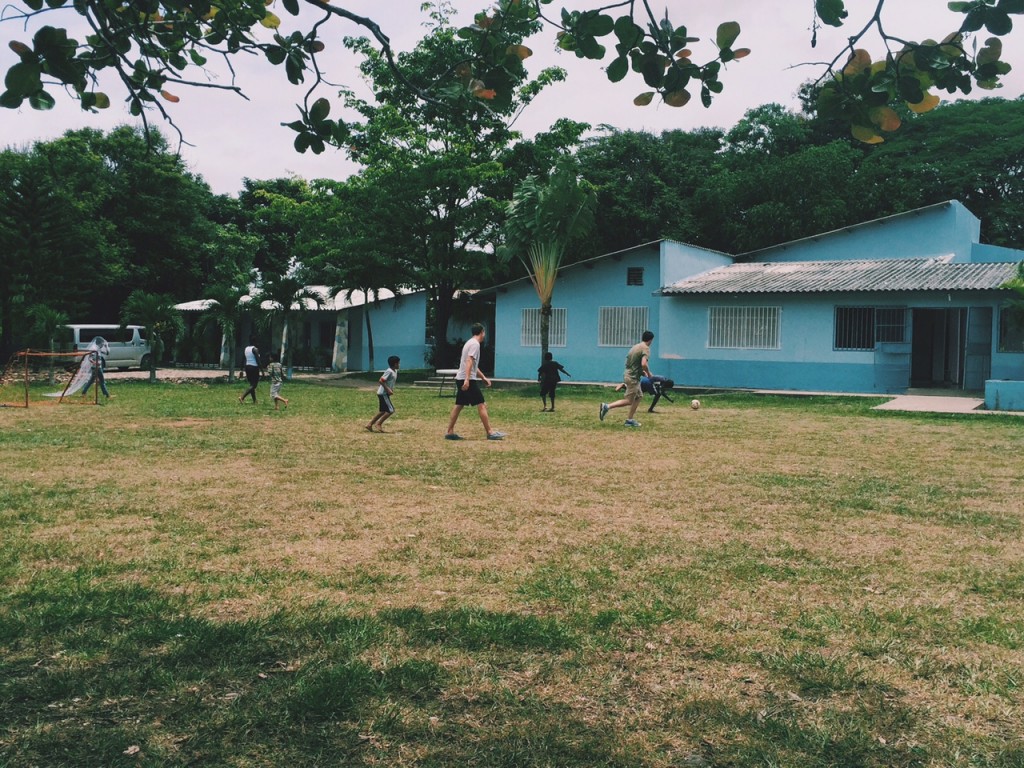
So, I stuck my head into other things, like the heartstring-pulling look on an orphaned child’s face when he sees someone he once loved return to his life after a two-year absence. As I took my first steps into Montaña, I watched him slowly rise to his feet as a slow recognition of the gringos walking toward him crossed his brow.
Ach-ey!
Santiago!
His smile split his face to reveal perfectly white teeth and his arms opened before my brother and Ashley were even within hugging distance.
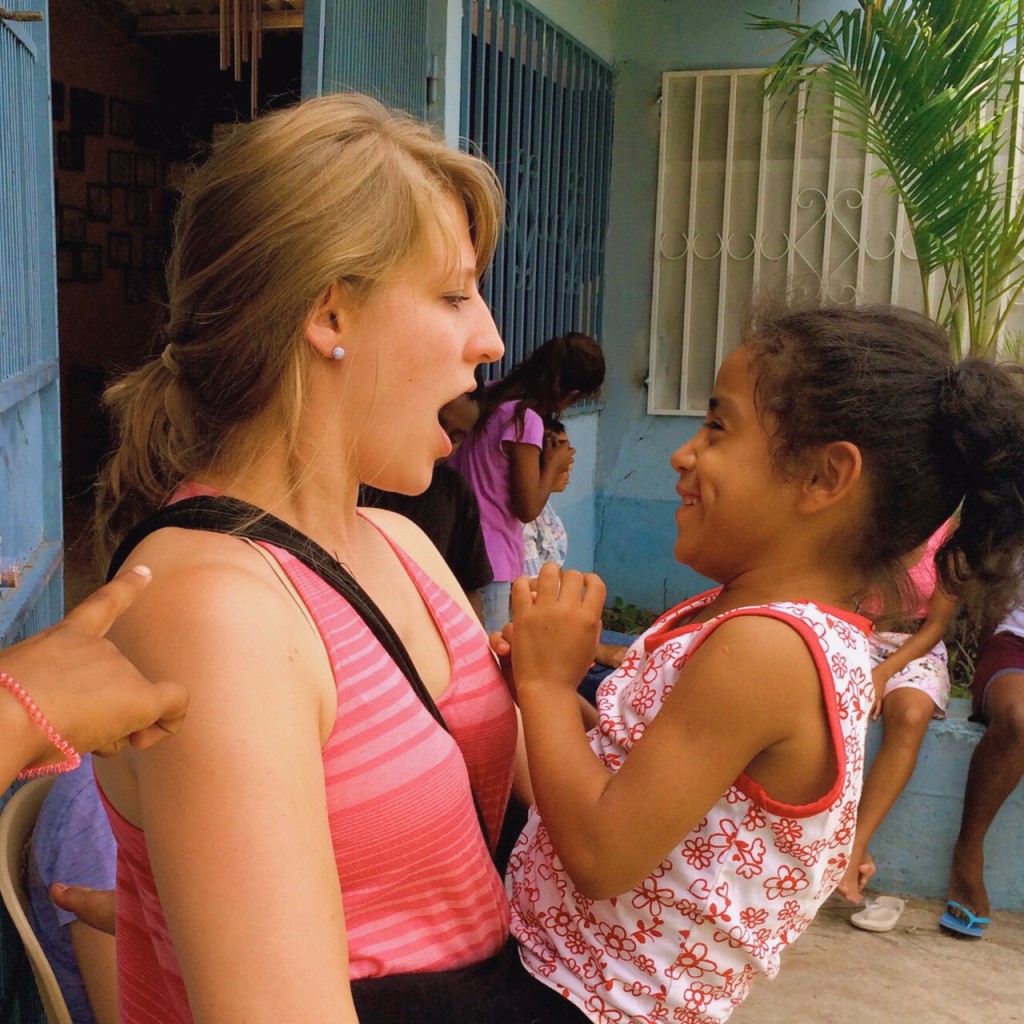
The kids spoke to me in Spanish as if I understood them, they didn’t care that my answers were a series of Italian phrases and single Spanish words with little context. They’d stop and take me in for a few minutes before continuing with their monologue. I was led around by my hand, hugged, and watched from a distance by varying sets of intrigued eyes.
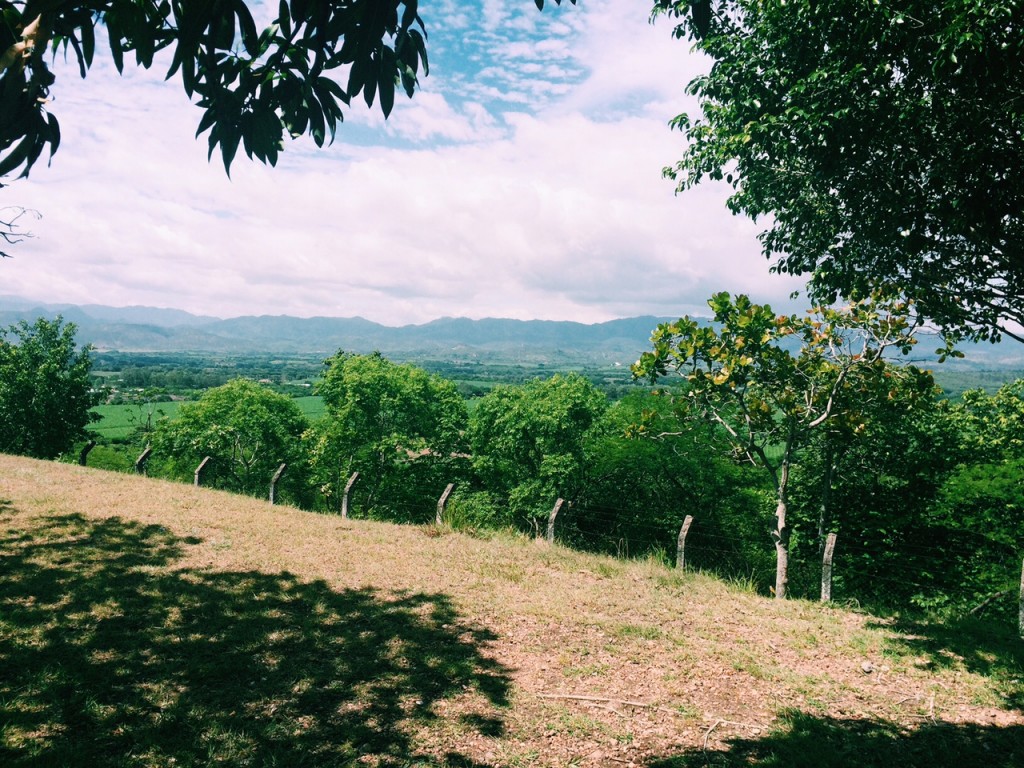
It was beautiful there. A small concrete building on a hill overlooking an expanse of green land and a tiny town that James and Ashley called home. They told me the tales of months without running water, of the first battles with stomach bugs, of the old lady who would catcall James as he carried five-gallon water jugs through hundred degree heat to their home.
In Tegus, I took my first and only chicken bus.
We stood on a dusty road, next to a single stall selling plantain chips and fresh fruits. We waited ages and when the bus did come, the conductor hung out from the swinging doors waving us along the pavement to jump aboard. Pushed to the back, James warned me not to take out my money and he paid my fare in as near to exact change as possible. Ashley and I were ushered to free seats in the front. For the duration of the hour-long ride I negotiated the least awkward place to rest my eyes, shifting them nervously between the exposed skin and dirty dreadlocks of the reggaeton rappers and their girl groupies on the massive screen plastered above the windshield and the half-drooping eyes of our clearly bored bus driver.
We got stopped by the police. Again. I was afraid of what might happen. Again. But nothing did. {Again}.
But being there around those kids and the volunteers that loved them made me want to do something, really do something. But what was my thing?

